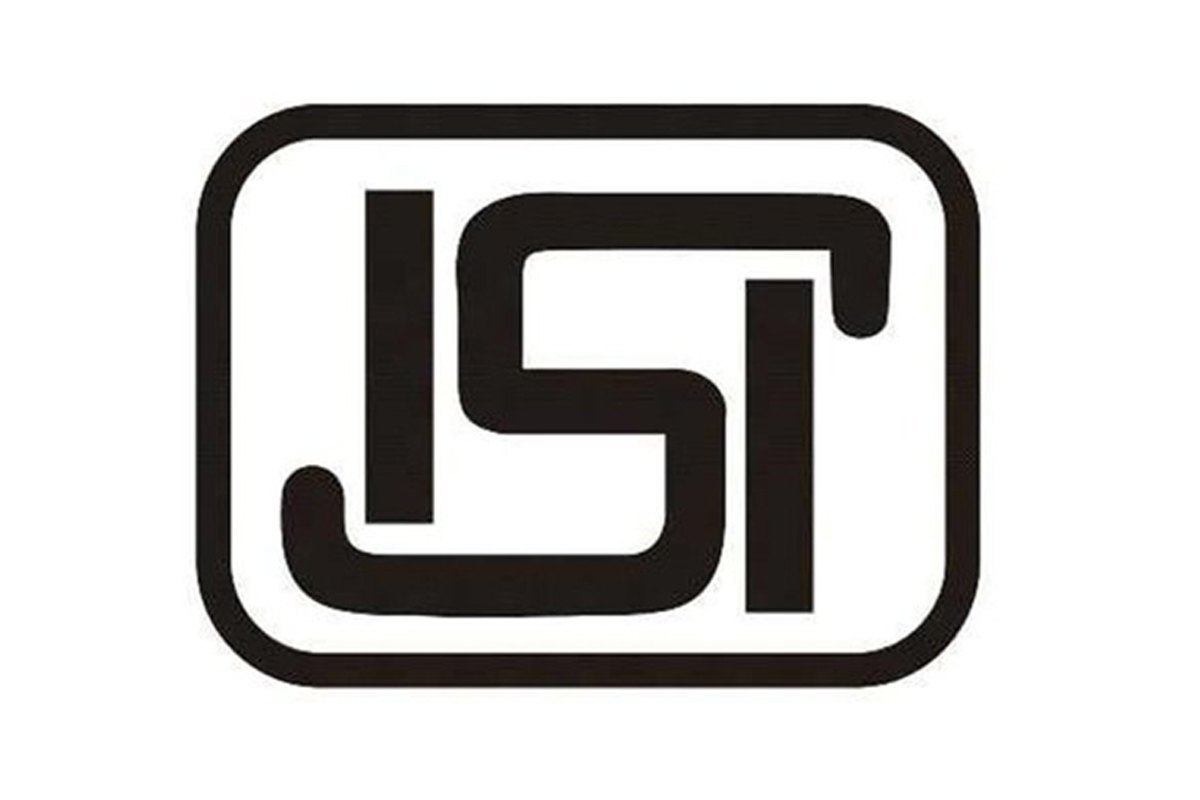BIS ISI Mark Certification
Sonax Enterprises India is a leading company that provides excellent services for ISI Mark Certification for your products in India. We are here to guide you through applying, preparing the necessary documents, conducting sample testing, and acquiring the BIS license. We offer a 24/7 consultation service so that you can get your BIS certification without much trouble and in the shortest time possible.
ISI MARK Certification - Overview
The ISI mark certification scheme is provided by the Bureau of Indian Standards (BIS) and is a symbol of quality and reliability for customers in the Indian market. It ensures conformity with the Indian standards for industrial products. However, some products need to be sold in India and they are products relating to health and safety such as electrical appliances, Portland cement, LPG valves, LPG cylinders, automotive tyres etc. Presently, the Government of India has listed 644 products under mandatory registration criteria. The voluntary certification is beneficial to manufacturers since it provides them with a competitive advantage by proving their willingness to meet the set Indian Standards.
Talk To Expert
Key Features of ISI Certification:
- Quality Assurance
- Compliance with Standards
- Market Access
- Brand Credibility
- Consumer Safety
- Consumer Trust
Basic Requirements to Obtain ISI Mark for Your Product
 Manufacturing Facility : The manufacturing facility must be sufficiently equipped to produce the product to the required Indian Standard Specifications (ISS). All production machinery must be installed and in use within the factory compound.
Manufacturing Facility : The manufacturing facility must be sufficiently equipped to produce the product to the required Indian Standard Specifications (ISS). All production machinery must be installed and in use within the factory compound. Testing Facility : It is crucial to have a laboratory in the factory with all the necessary tools and equipment. The laboratory should be equipped with all the necessary equipment to conduct tests on the product against the identified ISS. This guarantees that the product is always produced to the right quality standards.
Testing Facility : It is crucial to have a laboratory in the factory with all the necessary tools and equipment. The laboratory should be equipped with all the necessary equipment to conduct tests on the product against the identified ISS. This guarantees that the product is always produced to the right quality standards. Product Compliance : The product must meet the particular requirements stated in the relevant Indian Standard Specification. Compliance is compulsory to guarantee that the product is safe, of good quality, and performs as required by BIS.
Product Compliance : The product must meet the particular requirements stated in the relevant Indian Standard Specification. Compliance is compulsory to guarantee that the product is safe, of good quality, and performs as required by BIS. Testing Equipment Calibration : All the testing equipment must be calibrated from time to time so that the results of the test can be accurate and dependable. Calibration records must be kept and checked from time to time.
Testing Equipment Calibration : All the testing equipment must be calibrated from time to time so that the results of the test can be accurate and dependable. Calibration records must be kept and checked from time to time. Quality Control Procedures : The factory should also ensure it has set quality control measures in place. This entails conducting tests on the products while in the production process and even after the production process to determine whether they meet the set standards. Quality control personnel should be competent and personnel or should undergo training.
Quality Control Procedures : The factory should also ensure it has set quality control measures in place. This entails conducting tests on the products while in the production process and even after the production process to determine whether they meet the set standards. Quality control personnel should be competent and personnel or should undergo training. Factory Inspection : BIS performs an inspection of the manufacturing facility to confirm conformity with ISS. This inspection is concerned with the manufacturing procedure, the testing equipment, the quality assurance measures, and the general compliance with the set norms.
Factory Inspection : BIS performs an inspection of the manufacturing facility to confirm conformity with ISS. This inspection is concerned with the manufacturing procedure, the testing equipment, the quality assurance measures, and the general compliance with the set norms. Record-Keeping : Records of all the production and quality activities must be documented critically. This is the test reports, the calibration records, the inspection reports and any other documentation that shows compliance with the ISS. Record keeping ensures that traces can be made and accountability is easily made.
Record-Keeping : Records of all the production and quality activities must be documented critically. This is the test reports, the calibration records, the inspection reports and any other documentation that shows compliance with the ISS. Record keeping ensures that traces can be made and accountability is easily made.
By meeting these basic requirements, manufacturers can effectively prepare for the ISI certification process, ensuring their products meet the high standards of quality and safety recognized by the ISI mark.
ISI Mark Certification Procedure
To obtain ISI Mark certification, there are two available procedures: these are the Normal Procedure and the Simplified Procedure.
 Normal Procedure : This process usually lasts between sixty (60) to sixty-five (65) days to accomplish.
Normal Procedure : This process usually lasts between sixty (60) to sixty-five (65) days to accomplish. Simplified Procedure: : This is the faster option of the two and it usually takes 35 to 40 days to complete.
Simplified Procedure: : This is the faster option of the two and it usually takes 35 to 40 days to complete.
The Indian manufacturers have an option of either going for the Normal Procedure or the Simplified Procedure for certification of the ISI Mark for their products. However, manufacturers based in other countries have to follow the so-called Simplified Procedure to get ISI Mark for their products.

Step-1: Application Submission
The manufacturer has to make an application in the prescribed format (Form V) attach the necessary documents and enclose the application fee. This entails information on the product, the process of its making and the place of manufacture.

Step-2: Document Verification
BIS checks the information and all the documents presented to see that all the documents are complete and have met the initial criteria set. Where necessary, BIS will request further and better particulars from the applicant.

Step-3: Factory Inspection
BIS officers pay a visit to the manufacturing facility to ascertain the information submitted in the application. They evaluate the production methods, the testing equipment and procedures, the quality control measures and the handling of the raw materials and the finished products.

Step-4: Sample Collection
BIS officers pay a visit to the manufacturing facility to ascertain the information submitted in the application. They evaluate the production methods, the testing equipment and procedures, the quality control measures and the handling of the raw materials and the finished products.

Step-5: Product Testing
The collected samples are subjected to testing in the BIS-approved laboratories to ascertain that they conform with the Indian Standards. The laboratory produces detailed test reports which are then forwarded to the Bureau of Indian Standards.

Step-6: Review of Test Reports
BIS scrutinize the test reports to check that the particular product conforms to all the necessary standards. In case the product does not meet the required standard, BIS will notify the manufacturer who in turn will be required to make the necessary adjustment and return the product for evaluation.

Step-7: Grant of License:
After the testing process is completed and the manufacturing plant meets all the requirements the BIS provides the ISI certification license. This licence enables the manufacturer to apply for the ISI mark for the product. A license number which is to be displayed along with the ISI mark on the product is also provided with the license.
Documents Required for ISI Mark Certification
Applying for an ISI Mark license from the Bureau of Indian Standards (BIS) for a product requires the submission of several documents to check conformity to Indian standards. The following is a list of the documents that are needed for the process of acquiring the ISI Mark certificate:
- Application Form (Form V): The first submission is the application form V which is fully completed and contains information on the applicant, the product to be certified and the manufacturing facility.
- Company Registration Documents: Certified copy of the business permit or company incorporation certificate, Certificate of Incorporation, Memorandum of Association (MoA) and Articles of Association (AoA), and Evidence of GST registration for the manufacturing facility.
- Factory Documents: Details on the location of the manufacturing plant about geography. Site plans of the manufacturing facility highlight the location of machinery and equipment to be installed. A copy of the title deed or lease agreement for the factory premises is required.
- Product Details: Product descriptions contain detailed information about the product such as the drawings, size and weight, materials used in making the product and any other information that may be useful. A list of all the materials and components that have gone into the production of the product.
- Quality Control Documents: Evidence of the quality control measures that have been put in place in the manufacturing plant. Information on personnel who are in charge of quality assurance, their credentials and experience. Description of the measures taken during the testing process to confirm that the product meets the required Indian Standards.
- Testing Facility Documents: A comprehensive list of the testing equipment available at the facility as well as their calibration status. Certificate of calibration of all the testing equipment from a recognized calibration laboratory. Documentation of internal testing showing that the product is consistent with the set requirements.
- Manufacturing Process Documents: This includes a detailed flow chart of the entire process of manufacturing from the time raw materials are purchased to the final packaging of the product. Standard operating procedures for each stage of the manufacturing process to maintain consistency and quality.
- Inspection and Testing Records: Standard inspection reports of the manufacturing plant. Certification from BIS-recognized laboratories confirming that the product meets the Indian Standards.
ISI Mark Certification Fees
The fee structure provided below is indicative and may vary based on the specific product and BIS policies. It is advisable to check the latest fee structure on the BIS official website or contact EVTL India for complete clarification.
| No. | Type of Fees/Charges | Amount |
|---|---|---|
| 1 | APPLICATION FEE | INR 1000/- |
| 2 | PRELIMINARY INSPECTION CHARGES | INR 7000/- |
| 3 | ANNUAL LICENSE FEE | INR 1000 |
| 4 | MINIMUM MARKING FEE (Micro Scale Concession 80%, Small 50%, Medium 20%) |
As Applicable |
| 5 | SAMPLE TESTING FEE | As Applicable |

Benefits of ISI Mark Certification
Getting the ISI Mark certificate from the Bureau of Indian Standards (BIS) provides the following advantages to manufacturers, as they are assured that their products conform to the Indian standard and are accepted in the market. Here are some key benefits:
 Quality Assurance:
Quality Assurance:
The ISI mark is a mark of quality and also the mark of quality compliance to Indian standards. This provides the consumer with the confidence that the product has been tested and is of particular quality.
 Legal Compliance:
Legal Compliance:
ISI certification is however compulsory for some products that are deemed to be crucial for public health and safety such as electrical appliances, cement, LPG valves, automobile tires and so on. The following are the standards that have been provided to ensure that there is compliance with the set regulations.
 Market Access:
Market Access:
The Indian Standard Institute certification improves the marketability of products on the Indian market. Numerous government and private tenders require ISI certification as one of the conditions for participation, thereby opening up markets and increasing the possibilities for business development.
 Consumer Trust:
Consumer Trust:
The ISI Mark gives a sense of assurance and thus can be easily trusted by the consumers. It was argued that it reassures the consumer that the product is safe, and has undergone the necessary quality checks thus, alleviating the fear of product failure.
 Competitive Edge:
Competitive Edge:
Having an ISI certification gives that competitive edge that is required in the market. Certified products are considered better than non-certified products and may result in more sales and market share.
 Global Recognition:
Global Recognition:
WEven though it is mainly useful in the Indian market, ISI certification also increases the credibility globally. It shows that the manufacturer has invested in the production of quality products, which are in compliance with the set standards and this is good for export business.
 Improved Brand Reputation:
Improved Brand Reputation:
The ISI-marked products are always considered to be reliable and conform to the set quality standards. This in turn improves brand image and leads to the customers’ repeat purchases which is crucial for the organization’s continued business growth.
 Facilitation of Government Approvals:
Facilitation of Government Approvals:
It is relatively easier to get other government approvals and certifications with the certification of ISI. This is in concurrence with the government policies that encourage quality assurance and consumer protection.
Conclusion:
Therefore, getting ISI Mark certification from the Bureau of Indian Standards (BIS) is a significant step for manufacturers who want to maintain quality, and safety, and gain consumers’ trust in the Indian market. The ISI Mark, which stands for Indian Standards, not only increases the product’s credibility but also helps in market entry and regulatory compliance.
Provide your products with the quality that is expected from the Indian market, stand out from the competition, and enhance consumer trust with ISI Mark certification from BIS. Sonax Enterprises is one of the most renowned BIS certification consultants in India that aids manufacturers in obtaining BIS licenses across the globe. We have a trained and experienced team of professionals who are conversant with certification and regulatory compliance. Our experience and good relations with accredited testing laboratories and certification bodies will assist you in obtaining your BIS license in the shortest time and with minimal difficulties.
Frequently Asked Questions (FAQ)
- Relevant Product Code selection.
- ISI Mark Registration online Aplication form fill up with the required documents.
- Factory audit by BIS authorized auditor.
- Sample Report submission by BIS authorized laboratory.
- Grant of licence by BIS Authority.
ISI Certification Fees
The application and renewal fees for ISI Certification is Rs 1000/- per form. The testing fee, however, will vary from product to product based on the product code. Lastly, the marking fee shall be as specified by the Bureau after the approval of grant of license.
If you are considering to obtain ISI registration, then you have to follow the below steps:
- Step-1: You have to choose the product code.
- Step-2: Filling the Application Form.
- Step-3: Inspection of the Factory premise.
- Step-4: Collection of Test Report.
- Step-5: Issuance of ISI registration certificate.

